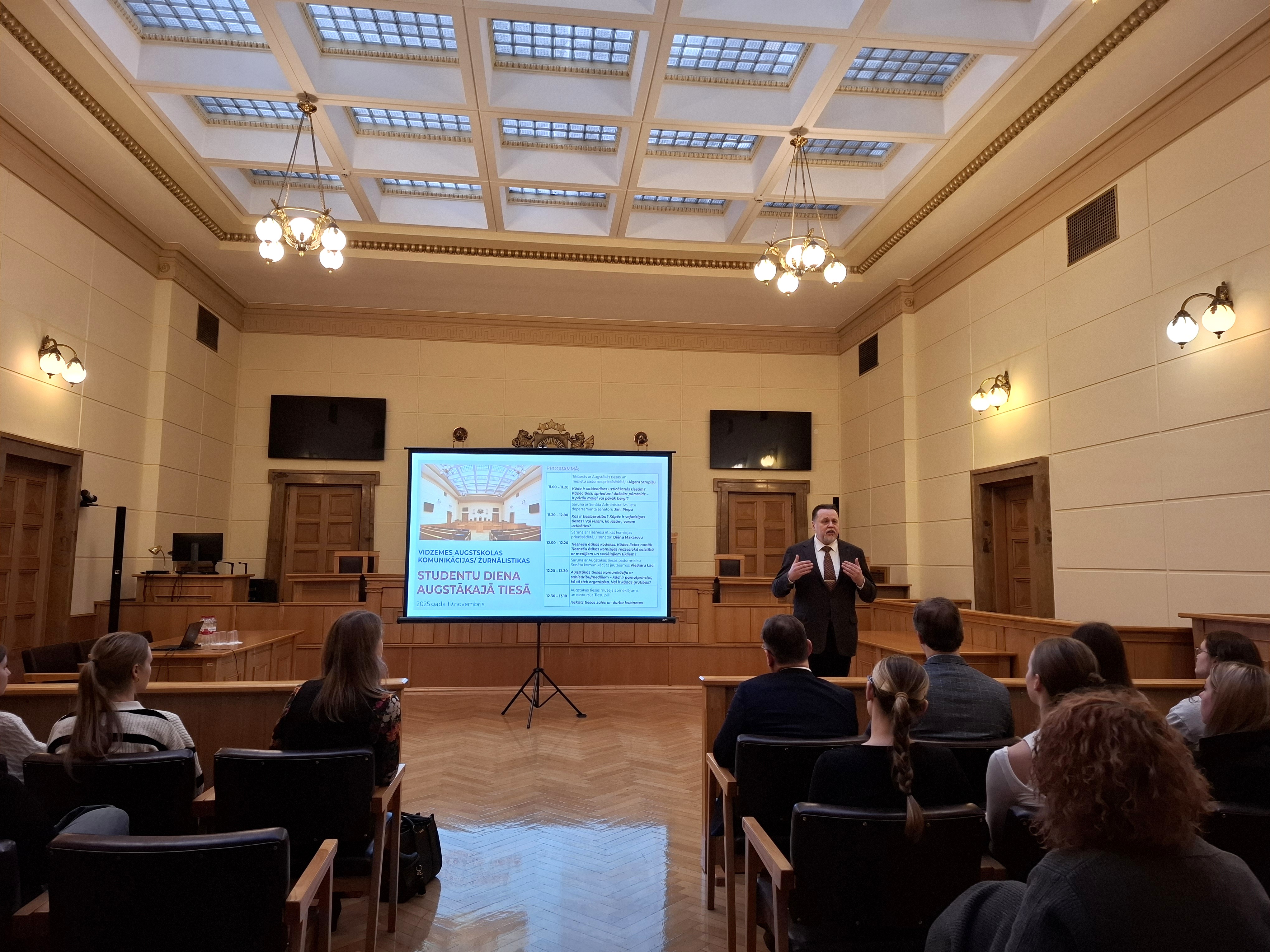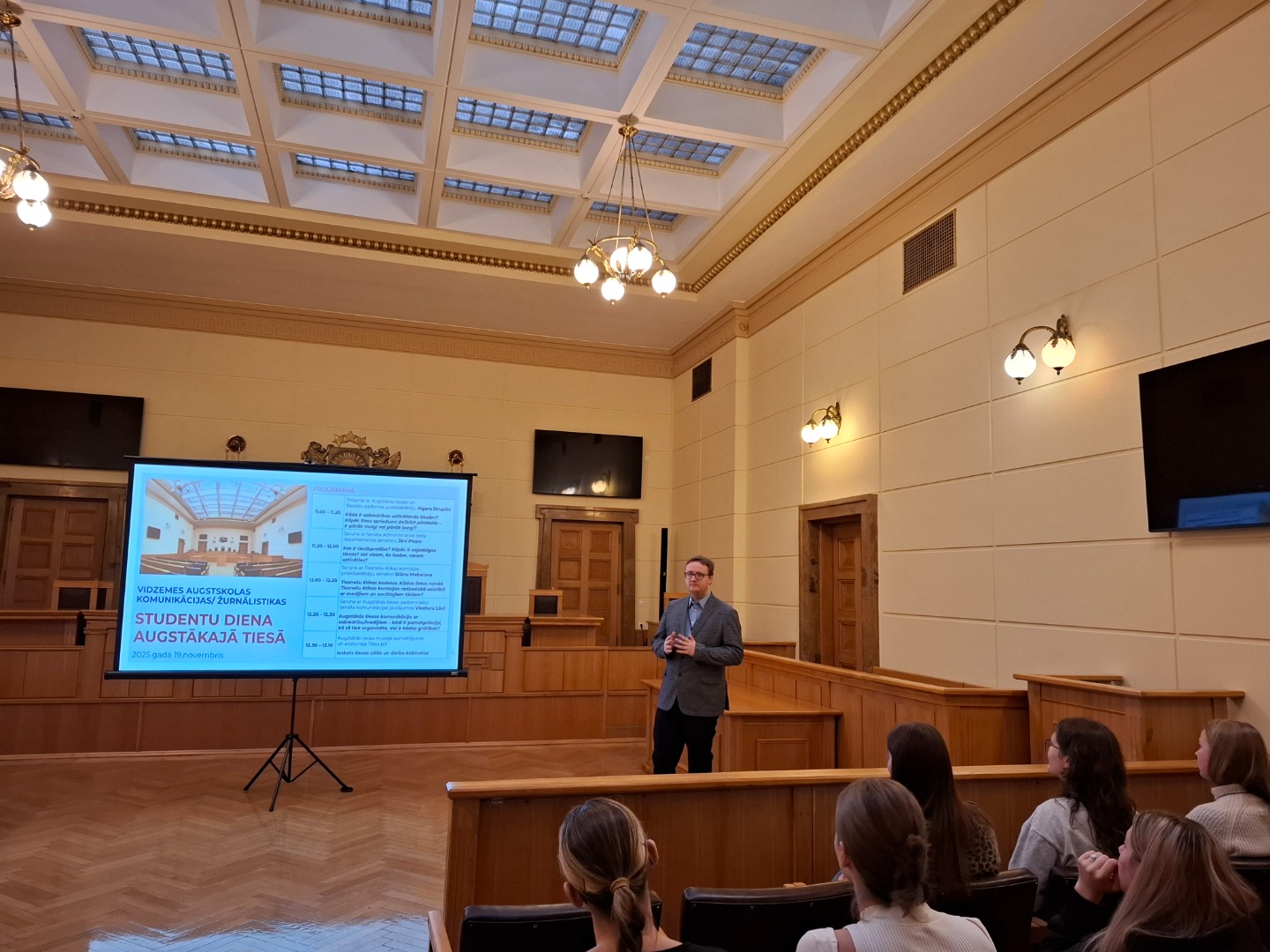21 November, 2025
Supreme Court President Aigars Strupišs in a conversation with students of Vidzeme University of Applied Sciences
On November 20, students of the study programme “Media Studies and Journalism” of Vidzeme University of Applied Sciences visited the Supreme Court.
The students met with Supreme Court President Aigars Strupišs, Senator Jānis Pleps, Chair of the Judicial Ethics Commission Diāna Makarova, and Supreme Court Adviser in the Matters of Senate Communication Viesturs Lācis.
Aigars Strupišs introduced the visitors to the judiciary as one of the branches of state power. He pointed out that professions of judges and journalists are both characterized by being independent and the fact that both professions must adhere to their own code of ethics. He also highlighted trends in public trust in the judicial system: while only about 30-35% of the population trusted the courts after the restoration of Latvia’s independence, thanks to more active communication and greater openness on the part of the courts, the level of trust is now approaching 50%.
Jānis Pleps, Senator of the Senate's Department of Administrative Cases, spoke to students about the importance of legal literacy; he highlighted how important it is to know one’s rights and obligations in order to be able to defend these rights. He also provided an overview of the structure of the Latvian court system and the profession of judge, as well as described the work of the Constitutional Court, the Court of Justice of the European Union and the European Court of Human Rights.
The Chair of the Judicial Ethics Commission, Senator Diāna Makarova, introduced the students to the work of the Commission, its composition, and the Code of Judicial Ethics. She spoke about cases related to judicial communication with journalists and on social media platforms, and provided examples of issues examined by the Commission. In its opinions, the Judicial Ethics Commission has emphasized that when interacting with media representatives, judges must ensure that their responses or refusals to give comments are well-considered, comply with high ethical standards, and do not undermine public confidence in the judiciary. Regarding judges' activity on social networks, the Commission has pointed out that this way of communication imposes additional obligations – the position of judge and the corresponding ethical principles do not allow them to use social networks in the same way as other users do. Although judges have the right to express their opinions on issues of public importance, they must at the same time ensure that their way of communication is neutral, responsible, and consistent with their status.
Viesturs Lācis, Adviser in the Matters of Senate Communication, told the students about his daily work, which involves gathering and preparing information on cases being examined by the Senate. He explained the criteria used to select cases for preparation of press releases and how daily cooperation with the media and journalists takes place.
At the conclusion of the event, students participated in a guided tour of the historic Palace of Justice and visited the Supreme Court Museum.
Baiba Kataja, Communication specialist of the Supreme Court
Telephone: +371 67020396; e-mail: baiba.kataja@at.gov.lv





